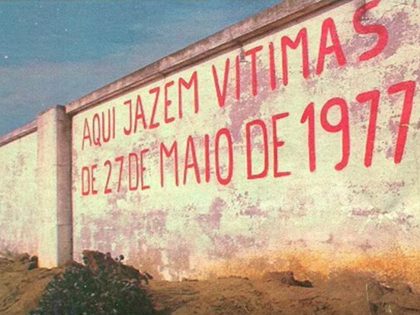Where is Angola?
A random terror attack on a football team gets media to pay attention to the conflict in Cabinda. In the process, they also expose their ignorance.

Near Djeno Cabinda, Angola. Image credit JB Dodane via Flickr CC BY-NC 2.0.
The tragic attack on the Togolese football team bus in the disputed Angolan province of Cabinda on the eve of 2010 African Cup of Nations, is tragic. Three people were killed and one player seriously injured.
What’s even more tragic is that it took a random attack on a football team to get the media to give attention to the conflict in Cabinda, a disputed province of Angola.
Then there’s European observers who can’t help themselves in exploiting the tragedy, making connections to South Africa’s ability to host the World Cup next year. In the process they let their racism get the better of their knowledge of geography.
On the first (the politics of Cabinda), Lara Pawson, who served as BBC correspondent in Angola, writes:
I was dumbfounded when I heard the news that the footballers travelled from Pointe-Noire [in the Republic of Congo] to Cabinda by road. If you want to hook up with FLEC [that’s the Cabindan rebels] the best way to do it is to go to Pointe-Noire. The place is riddled with FLEC. The rebels must have been beside themselves with joy when they heard of the Togolese team plans. At last, after years of being ignored, the ultimate media opportunity drops into FLEC’s lap. All they needed was a few well-armed men to cause even The Sun to (attempt to) cover the story.
It was always clear that the 2006 sham deal would severely lack the support of the Cabindan population, who are fed up with living in poverty in the richest province of the country. Many said that onshore oil exploration in Cabinda would make the contrast in wealth more visible than ever and Tiago’s campaign less so – but this little coup before CAN has, only briefly I’m sure, put FLEC’s campaign on to breakfast tables across the world in a way that even the old leader might never have dared hope for.
On the second issue, the South African organizers of the World Cup, has, to their credit, been quick to correct the faulty geography. This was the response of Danny Jordaan, the chief organizer of South Africa 2010, speaking to reporters:
If there is a war in Kosovo and a World Cup in Germany, no one asks if the World Cup can go on in Germany, everyone understands the war in Kosovo is a war in Kosovo.



